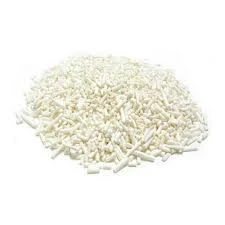
Exploring E223 as a Food Additive and Its Potential Effects on Health
Understanding E223 The Food Additive You Should Know About
Food additives play a significant role in modern food production, ensuring safety, enhancing flavor, and extending shelf life. Among the myriad of additives used globally, E223, or sodium metabisulfite, is noteworthy for its diverse applications and potential implications for health. In this article, we will explore what E223 is, its uses in the food industry, possible health effects, and the regulatory framework surrounding its use.
What is E223?
E223 is the European food additive code for sodium metabisulfite, a chemical compound that serves as a preservative and antioxidant. It is a white crystalline powder that releases sulfur dioxide when dissolved in water. This property allows it to effectively inhibit the growth of bacteria and fungi, making it a popular choice for preserving food products.
Uses of E223 in Food
Sodium metabisulfite is widely employed in various food and beverage products. Its primary functions include
1. Preservative E223 helps prevent spoilage in foods such as dried fruits, wines, and pickles. By acting against harmful microorganisms, it extends the shelf life of these products.
2. Antioxidant In processed foods, E223 can protect against oxidative damage, which can cause discoloration and degradation of flavor. This characteristic is especially crucial in products like fruit juices and dehydrated fruits.
3
. Bleaching Agent E223 is also used in flour and certain types of starches to improve whiteness and enhance the cooking properties of these ingredients.e223 food additive

4. Clarifying Agent In winemaking, sodium metabisulfite is utilized to clarify the wine by removing unwanted particles and preventing spoilage during fermentation.
Health Effects and Safety Concerns
While E223 serves several beneficial purposes in food preservation, its use is not without controversy. Some individuals may experience allergic reactions to sulfites, leading to symptoms such as headaches, hives, or respiratory issues. This is particularly concerning for asthmatics, who are more susceptible to sulfite sensitivity.
Regulatory bodies, including the European Food Safety Authority (EFSA), have reviewed the safety of sodium metabisulfite. They have established an acceptable daily intake (ADI) to ensure consumer safety. Despite this, it's essential for individuals who are sensitive to sulfites to read product labels carefully, as E223 can often be overlooked in ingredient lists.
Regulatory Framework
In the European Union, food additives, including E223, are strictly regulated. The EFSA evaluates the safety of food additives through scientific research and risk assessments. Only those additives that meet safety criteria are permitted for use in food products.
In the United States, the Food and Drug Administration (FDA) also oversees food additives, categorizing them as Generally Recognized as Safe (GRAS) or requiring review through a food additive petition process. Sodium metabisulfite is recognized as safe when used in compliance with established guidelines.
Conclusion
E223, or sodium metabisulfite, is an essential food additive that plays a vital role in preserving and improving the quality of various food products. While it offers numerous advantages in food production, consumers must remain informed about potential sensitivities and the importance of reading labels. As regulations ensure that food additives are safe for public consumption, increasing awareness about such additives can empower consumers to make informed choices about the foods they consume. Understanding additives like E223 not only enhances knowledge about food safety but also encourages better dietary habits.
-
Pure Sodium Dichloroisocyanurate Dihydrate | Powerful DisinfectantNewsAug.29,2025
-
Industrial Chemicals: Quality & Purity for Every IndustryNewsAug.28,2025
-
Nitrile Rubber Honoring Strict Production StandardsNewsAug.22,2025
-
Aspartame Ingredients Honoring Food Safety ValuesNewsAug.22,2025
-
Fertilizer for Balanced Plant NutritionNewsAug.22,2025
-
Cyanide Gold Processing with High Purity AdditivesNewsAug.22,2025
-
Formic Acid in Textile Dyeing ApplicationsNewsAug.22,2025
Hebei Tenger Chemical Technology Co., Ltd. focuses on the chemical industry and is committed to the export service of chemical raw materials.
-

view more DiethanolisopropanolamineIn the ever-growing field of chemical solutions, diethanolisopropanolamine (DEIPA) stands out as a versatile and important compound. Due to its unique chemical structure and properties, DEIPA is of interest to various industries including construction, personal care, and agriculture. -

view more TriisopropanolamineTriisopropanolamine (TIPA) alkanol amine substance, is a kind of alcohol amine compound with amino and alcohol hydroxyl, and because of its molecules contains both amino and hydroxyl. -

view more Tetramethyl Thiuram DisulfideTetramethyl thiuram disulfide, also known as TMTD, is a white to light-yellow powder with a distinct sulfur-like odor. It is soluble in organic solvents such as benzene, acetone, and ethyl acetate, making it highly versatile for use in different formulations. TMTD is known for its excellent vulcanization acceleration properties, which makes it a key ingredient in the production of rubber products. Additionally, it acts as an effective fungicide and bactericide, making it valuable in agricultural applications. Its high purity and stability ensure consistent performance, making it a preferred choice for manufacturers across various industries.





